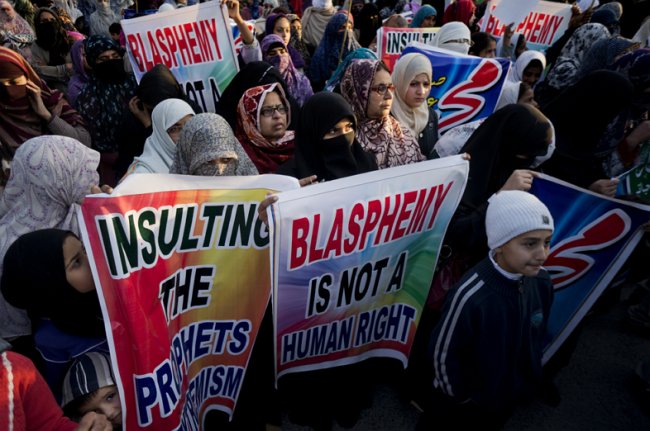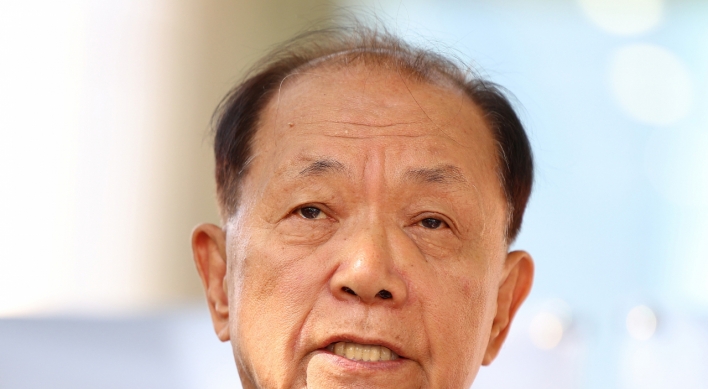Satire, which was pushed to the fore following the Charlie Hebdo affair in January, is an irreverent art form that intends to shock, provoke and offend, aiming to elicit a change in perspective through sometimes taboo representations.
But the shock and grief in the wake of the Jan. 7 Paris shootings was accompanied by considerable anger by more moderate Muslims. Their reaction to the cartoons showed that satire is a double-edged sword that can be used against marginalized people, and should therefore be wielded with caution.
“The notion of the danger of satire has become part of the genre,” said Ralph Rosen from the University of Pennsylvania, who has long studied scandalous art. “You’re dealing with completely incompatible attitudes toward free speech.”
But the shock and grief in the wake of the Jan. 7 Paris shootings was accompanied by considerable anger by more moderate Muslims. Their reaction to the cartoons showed that satire is a double-edged sword that can be used against marginalized people, and should therefore be wielded with caution.
“The notion of the danger of satire has become part of the genre,” said Ralph Rosen from the University of Pennsylvania, who has long studied scandalous art. “You’re dealing with completely incompatible attitudes toward free speech.”

French President Hollande staunchly defended the satirical magazine in the wake of the attacks, claiming that “People don’t understand (France’s) attachment to freedom of speech.”
But it wasn’t the first time that satire had angered Muslims around the world.
Danish newspaper Jyllands-Posten in 2005 published 12 cartoons lampooning Prophet Mohammed, flouting the Islamic prohibition against depictions of its prophets, which were republished by European newspapers in 2008.
Regarding the Danish cartoon controversy, Oxford professor Tariq Ramadan, a specialist in contemporary Islamic studies, was quoted by the media as saying, “(We) must assert the inalienable right to freedom of expression and, at the same time, demand measured exercise of it.”
In Europe and America, democracies are not only more receptive to political ridicule and religious denigration ― “cynicism, irony and indeed blasphemy are part of (Western) culture,” according to Ramadan.
Britain is proud home to a rich satirical tradition and the birthplace of Punch magazine in the 19th century and BBC program “Have I Got News for You.”
The United States welcomed Egyptian satirist Bassem Youssef into the ranks of Harvard University as a resident fellow for this spring semester.
Elsewhere, satire is less welcome. Malaysian authorities in mid-February arrested political cartoonist Zulkiflee Anwar Haque, known by his pen name Zunar, for sedition after he condemned the state’s imprisonment of opposition leader Anwar Ibrahim.
Singapore’s Chew Peng Ee aka Leslie Chew, was released from contempt of court charges in 2013 only after he deleted his Facebook cartoon series “Demon-cratic Singapore.”
Indian political cartoonist Aseem Trivedi remains under investigation for allegedly mocking the constitution in 2012.
Closer to home, North Korea in mid-December was openly denounced by the Obama government for alleged cyberattacks against Sony Pictures over its comedy film “The Interview,” which mocks dictator Kim Jong-un. Pyongyang also publicly criticized the U.S. over the film.
The success of the movie, which was eventually screened in the U.S. and the U.K. and amassed over $40 million in digital sales, may have emboldened Apple’s mid-February approval of “Flappy Birds”-style mobile game “Little Dictator,” which ridicules the North Korean leader, whom the Guardian deemed “too easy a target for satire.”
But freedom of speech is legally restricted in Western bastions of democracy as well. The U.K. Public Order Act prohibits “threatening, abusive or insulting speech” likely to cause distress, while its Race Relations Act declares “incitement to racial hatred” a legal offense.
The U.S. exempts “fighting words” likely to “incite an immediate breach of the peace,” together with copyright, trademarks, commercial secrets and indecent content, from its First Amendment.
Likewise, several European democracies such as Italy and Germany prohibit publicized images that recall fascism and Nazism ― even Charlie Hebdo fired cartoonist Maurice Sinet aka Sine, in 2009 for an anti-Semitic column.
What then remains of free expression is far from what Hollande claimed a “nonnegotiable” right following the Jan. 7 shootings.
Professor and dean DeWayne Wickham from Morgan State University wrote, “The newspaper’s continued mocking of the Islamic prophet incites violence. … It pushes Charlie Hebdo’s free speech claim beyond the limits of the endurable.”
Turkish Prime Minister Ahmet Davutoglu, who protested the magazine’s defiant follow-up edition, said days after the attacks, “Freedom of the press does not mean freedom to insult. … We are determined to protect the honor of the Prophet the same way as we are determined in our stance against terrorism in Paris.”
Satire’s claim to freedom of speech does backfire on occasion, perpetuating preexisting prejudices against minority groups. This was the case in the 2005 Danish cartoons affair, according to anthropologist Talal Asad, distinguished professor at CUNY Graduate Center.
“The conflict that many Euro-Americans saw in the Danish cartoons scandal was between the West and Islam, each championing opposing values: democracy, secularism, liberty, and reason (versus) … tyranny, religion, authority and violence,” said Asad in his “Free Speech, Blasphemy and Secular Criticism” paper delivered at University of California, Berkeley.
Professor Tim Parks from IULM University of Milan said in a New York Review of Books article, “If (satire) doesn’t point toward positive change, or encourage people to think in a more enlightened way, it has failed.
“The worst case is when satire reinforces the state of mind it purports to undercut, polarizes prejudices, and provokes the very behavior it condemns,” said Parks, arguing this was the case with Charlie Hebdo.
Cartoonist Joe Sacco, author of best-selling graphic novel “Palestine,” agreed in a cartoon published by U.K. media days after the attacks. “Though tweaking the noses of Muslims might be as permissible as it is now believed to be dangerous, it has never struck me as anything other than a vapid way to use the pen.
“When we draw a line, we are often crossing one too. Because lines on paper are a weapon, and satire is meant to cut to the bone,” the Maltese-American comics journalist said.
The tragic shootings on Jan. 7 showed that the joke is no less lethal than the sword. Neither does it always inspire laughter.
By Yoon Sarah (sarah356@heraldcorp.com)
-
Articles by Korea Herald





![[KH Explains] No more 'Michael' at Kakao Games](http://res.heraldm.com/phpwas/restmb_idxmake.php?idx=644&simg=/content/image/2024/04/28/20240428050183_0.jpg&u=20240428180321)












![[Herald Interview] Mistakes turn into blessings in street performance, director says](http://res.heraldm.com/phpwas/restmb_idxmake.php?idx=652&simg=/content/image/2024/04/28/20240428050150_0.jpg&u=20240428174656)
